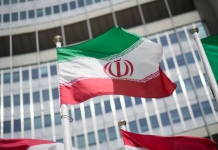DM Monitoring
NUR-SULTAN: Kazakh President Kassym-Jomart Tokayev participated in the meeting of the Commonwealth of Independent States (CIS) Council of Heads of State held via a videoconference.
The meeting explored aspects of cooperation within the CIS, prospects for its development, and efforts to counter the coronavirus pandemic. Taking part in the meeting were President of Azerbaijan Ilham Aliyev, President of Belarus Alexander Lukashenko, Acting President of Kyrgyzstan Talant Mamytov, President of Moldova Igor Dodon, President of Tajikistan Emomali Rahmon, President of Turkmenistan Gurbanguly Berdimuhamedov, President of Uzbekistan Shavkat Mirziyoyev, Chair of the Council of the Inter-Parliamentary Assembly of the CIS Member States Valentina Matviyenko, and Chair of the Executive Committee and Executive Secretary of the CIS Sergei Lebedev.
Addressing the assembled heads of state, Tokayev noted that the meeting takes place amid multiple problems in the global economy and international politics that were exacerbated by the coronavirus pandemic.
“In these conditions, our absolute priority is in maintaining social and economic stability, ensuring basic incomes and employment. However, this cannot be achieved without entirely restarting trade and economic relations. Intensified efforts are needed to further liberalize mutual trade in the region by removing barriers and restrictions. It is important to focus on attracting investments, the effective use of transit and transport potential, and on deepening industrial cooperation and developing horizontal ties across the regions,” said Tokayev.
He noted the importance of adopting the agreement on mutual trade of services, raising the issue of environmental protection, introducing green solutions as well as facilitating digitization.
As chair of the CIS Interstate Environmental Council in 2021, Kazakhstan proposes to explore the possibility of aligning approaches and harmonizing national legislation in this area and to establish a working group on coordinating the digitization effort. Close cooperation between the member countries remains crucial.
“Yes, we may have different economic potential, our historical vision, and even, as the Nagorno-Karabakh conflict showed, our geopolitical worldviews can also be different. But the main thing is that the people of our countries want to live in peace, and to be friends with one another. Our task is to avoid situations that might divide our people, but rather seek ways and opportunities for mutually beneficial cooperation and for bringing the CIS countries closer under the conditions of strategic turbulence. We should think about multilateral interaction in the post-pandemic world with all its challenges and complexities,” said Tokayev.
He also noted that the CIS enjoys a well-deserved status in the international community.



